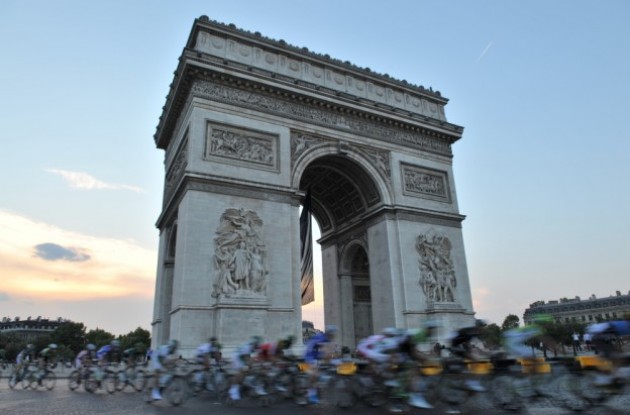UCI reports no doping cases from 2013 Tour de France
The testing program included 113 urine samples tested for EPO and 15 for steroids among the 622 samples. In blood analysis, 22 samples were tested for EPO-like substances, 18 for human growth hormone and two for transfusions.
"We don't have any adverse finding from the Tour de France," Francesca Rossi, director of the UCI-appointed Cycling Anti-Doping Foundation (CADF), said at a briefing.
The testing included 203 samples taken from riders in training and 419 during the three-week race, which was won by Chris Froome of Britain. A total of 443 blood samples and 179 urine samples were taken in a program jointly run by the UCI and the French anti-doping agency (AFLD). Most blood samples were used for comparisons to the biological passport system, which charts the blood levels of riders.
The total samples rose from 566 from the 2012 Tour de France, when only Frank Schleck of Luxembourg tested positive for a banned diuretic.
Tour de France riders who used banned drugs or doping methods could still be identified because stored samples can be analyzed again in the future using new or improved testing techniques.
Rossi said the foundation could re-test when the World Anti-Doping Agency certifies threshold limits for substances such as AICAR and growth hormones.
She also expects steroid profiling to be added to the biological passport, which the UCI has managed since 2008.
Cycling's anti-doping program is an issue in the current UCI presidential election, with challenger Brian Cookson pledging to create an agency independent of the governing body. UCI President Pat McQuaid supports the existing structure to catch drug cheats.
However, Rossi said the CADF is working to create an independent oversight board "starting work with us very soon." The UCI will continue to host the foundation and fund 15 percent of its annual budget of $7.6 million.
"In a technological world, location is less important than people. For me, independence is not an address," she said.
Rossi said the CADF has not secured a working agreement with the U.S. Anti-Doping Agency, whose investigation exposed massive doping by Lance Armstrong's teams in a report published last October.
"We will come back to them again and try to sign an agreement very soon," Rossi said.








